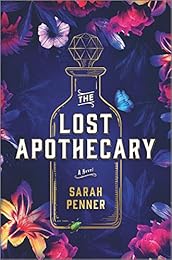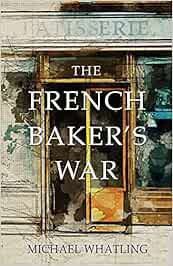2.5 Stars
This is another of those much-hyped books that left me unimpressed.
After a year of marriage, Hannah’s husband Owen Michaels disappears, leaving her with his sixteen-year-old daughter Bailey. His last message to his wife is “Protect her” and Hannah knows that he means Bailey. The FBI is investigating the tech firm for which Own has worked. Though the CEO is charged with fraud, Hannah refuses to believe her husband was involved and thinks he may have disappeared for some other reason. The two women set out to find Owen but discover that he had many secrets about his past.
Hannah is the narrator; unfortunately, I found her bland and boring. What is emphasized about her is that she is a saint in her dealings with her stepdaughter. Bailey is going through a difficult time and she is a teenager, so some of her behaviour is understandable, but in many ways she is just a spoiled brat. Owen seems never to have said no to his daughter, even when she treats Hannah contemptuously. Hannah constantly makes excuses for Bailey’s behaviour, tiptoes around her, and lets her get away with everything, so concerned is she that Bailey like her. Isn’t it time that Bailey learn that the feelings and needs of others are important?
A major focus of the book is the evolving relationship between Hannah and Bailey. As expected, Bailey gradually accepts that Hannah is someone she can trust. I think, however, that Hannah could have shown a bit more backbone in confronting Bailey. Putting a child’s welfare above one’s own is admirable, but Bailey is sixteen, not six, and a few blunt, honest conversations would have been helpful. Hannah speaks of grieving privately only after Bailey has recovered from her loss. Why doesn’t Hannah show her sadness and point out what she has lost? Bailey is sixteen, not six, and it’s time to stop being selfish. At one point, Hannah says, “She is yelling at me because she wants to be yelling at him. It’s a feeling I can relate to. I’m just as angry as you are, I want to say.” Eight times, Hannah uses the phrase I want to say; I wish she’d just get on with it! Bailey’s behaviour might be realistic given the circumstances and her upbringing, but Hannah’s reactions are not.
The mystery surrounding Owen is solved easily by a woodturner who becomes an amateur detective. Of course she has Bailey’s help, Bailey who can’t remember anything but then conveniently remembers very specific things from twelve years earlier. With little skill and effort, everything falls into place. And some of the things mentioned are just bizarre: when the identity of L Paul is revealed, it makes no sense that she is a conservator, a guardian who cares for and protects a person? There’s a “most recent” will and then a “final” will? Hannah’s best friend from a small town on the Hudson River coincidentally ends up living nearby on the West Coast?
This book is over-hyped. The writing is mediocre, the plot is predictable, and the ending is cheesy. It has little to recommend it other than it is a quick read. I don’t recommend it unless you’re looking for some mindless fluff.






